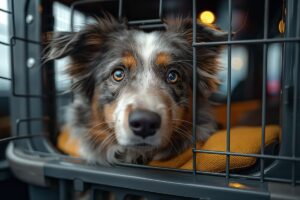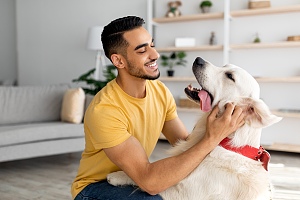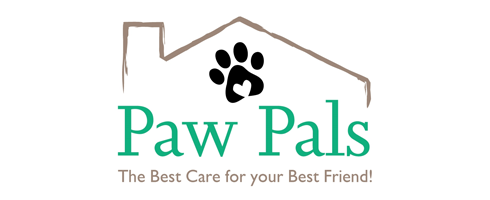8 Things Dog Owners Often Do That Secretly Upset Their Pets (And How You Can Keep Them Happy, Even While You’re Away)
As pet parents, our dogs are not just animals, they’re family. We talk to them, cuddle with them, celebrate their birthdays, and make sure they’re comfortable and well-fed. But just like relationships between humans, even the most loving dog-owner dynamic can experience a few bumps along the way.
The truth is, dogs are incredibly perceptive and sensitive creatures. While they can’t speak our language, they’re constantly interpreting our actions and behavior. And sometimes, what we think is completely harmless, or even affectionate, might be a source of ongoing stress or discomfort for them.
If you’re truly dedicated to high-quality dog care (at home or through a professional service like dog sitting or overnight pet sitting), it’s important to understand what might be unintentionally upsetting your pup. Here are eight common behaviors that could be bothering your dog, plus tips on how to improve communication and connection with your furry friend.
1. Yelling
We’ve all been there, a chewed shoe, a tipped-over trash can, maybe even an “accident” inside the house. Your first instinct might be to raise your voice. But yelling doesn’t teach a dog what they did wrong. Instead, it confuses and scares them. Dogs associate tone with emotion rather than specific actions. A calm, consistent approach to correction, along with positive reinforcement, will go much further in helping your dog understand expectations.
2. Hugging
We know, it feels impossible not to wrap your arms around your lovable furball. But unlike humans, dogs don’t perceive hugs as a form of affection. The sensation of being enveloped or held tightly can feel restrictive and even threatening. Instead of hugs, show your love with belly rubs, treats, or gentle ear scratches, these gestures are much more comfortable and appreciated.
3. Head Patting
You might be tempted to give your pup a few good pats on the head as you walk by. But for most dogs, a hand coming down toward their face feels abrupt and invasive. While head pats may be well-intentioned, they can be misinterpreted as dominance or even mimic past negative experiences. Try petting them under the chin, on the chest, or behind the ears instead.
4. Forcing Friendships with Other Dogs
“Your dog is going to love my dog!”, Sound familiar? While socialization is important, not all dogs get along right away. Just like humans, dogs have distinct personalities. Forcing interactions with unfamiliar dogs can result in unnecessary stress or even aggression. Let friendships form organically and give your pup the freedom to engage—or not—on their own terms.
5. Restricting Exploration During Walks
Daily walks provide physical exercise, but they also serve as vital mental stimulation. Dogs experience the world through their noses, and constantly tugging on the leash or hurrying the walk prevents them from enjoying this sensory exploration. Whenever possible, give your dog time to sniff, observe, and interact with their environment. If you’re using a dog sitting service or book pet sitting from a professional, make sure they’re trained to allow meaningful outdoor play and exploration.
6. Ignoring Their Attempts to Interact
Have you ever been too busy checking your phone or working from home and ignored your dog’s nudge, whimper, or toy drop at your feet? Those are clear attempts to connect. Neglecting these signals regularly can lead to anxiety and behavioral issues. Try to carve out even five minutes of one-on-one time several times a day. Regular attention will strengthen your bond and boost your dog’s confidence and joy.
7. Prolonged Eye Contact or Staring
While you may find it endearing to look deeply into your pup’s eyes, to a dog, prolonged staring can feel intimidating or confrontational. This is especially true when the staring is silent and unaccompanied by soothing gestures. Instead, blink slowly, speak gently, or look away after a brief glance to show that you’re coming from a place of love, not confrontation.
8. Waking Them Up Abruptly
That peaceful, tail-curled slumber is sacred. Dogs need plenty of sleep to recharge and regulate their emotions. Unless absolutely necessary, like a trip to the vet or an important feeding schedule, avoid waking your dog while they’re resting. Just like us, dogs can feel startled, cranky, or confused when woken up suddenly.

Going Away? Choose a Pet Sitting Service That Understands Dog Behavior
Knowing what upsets your dog is the first step toward building a stronger connection, and it becomes even more important when someone other than you is taking care of your pet. Whether you’re heading out of town or working long hours, it’s essential to choose a pet care provider who understands your dog’s emotional and physical needs.
At Paw Pals Pet Sitting, we specialize in compassionate, individualized pet care in Northern Virginia. Our professional dog sitting and overnight pet sitting services are designed to mimic your dog’s daily routine and provide the kind of attentive, respectful care they receive from you. We always consider subtle canine cues, preferences, and sensitivities; ensuring your dog feels calm, safe, and loved in your absence.


